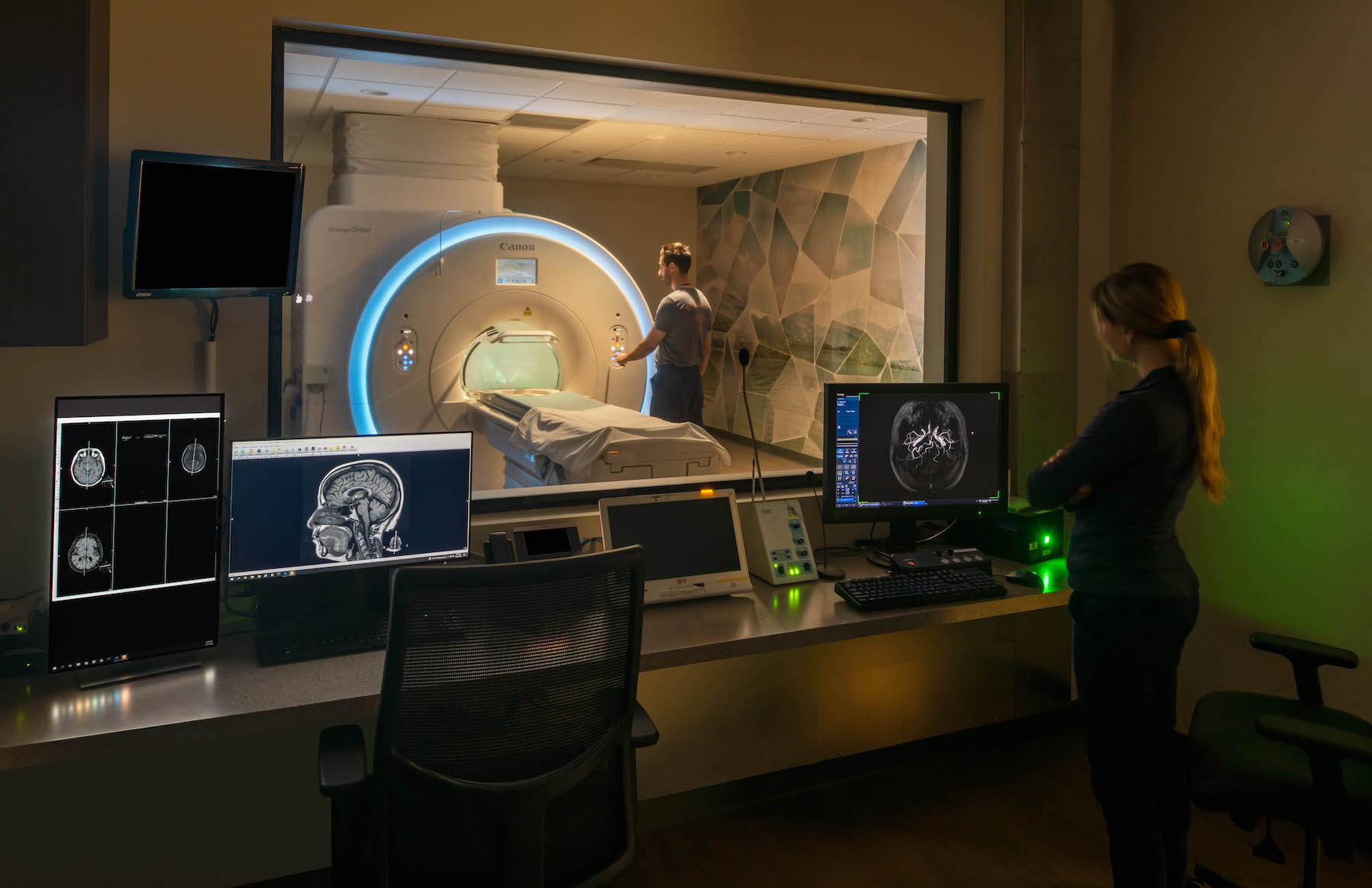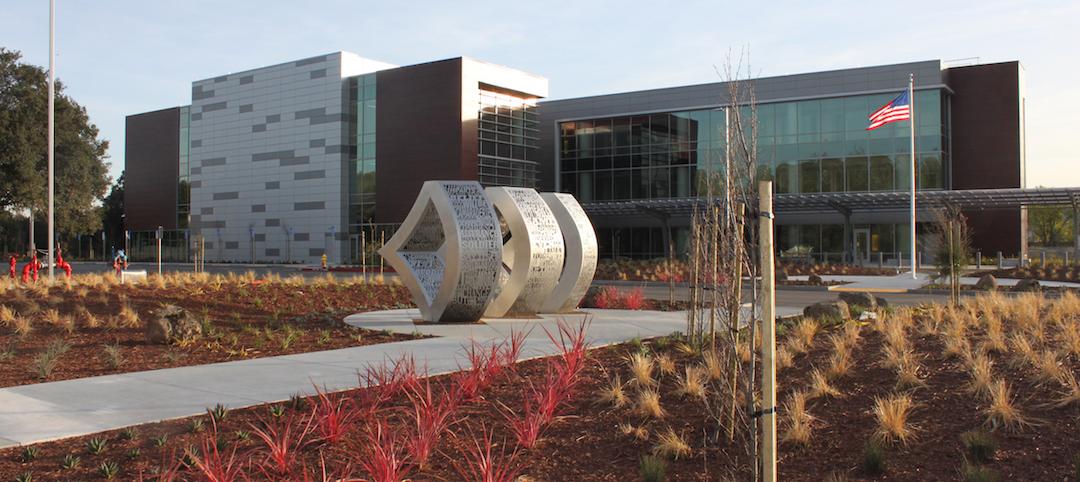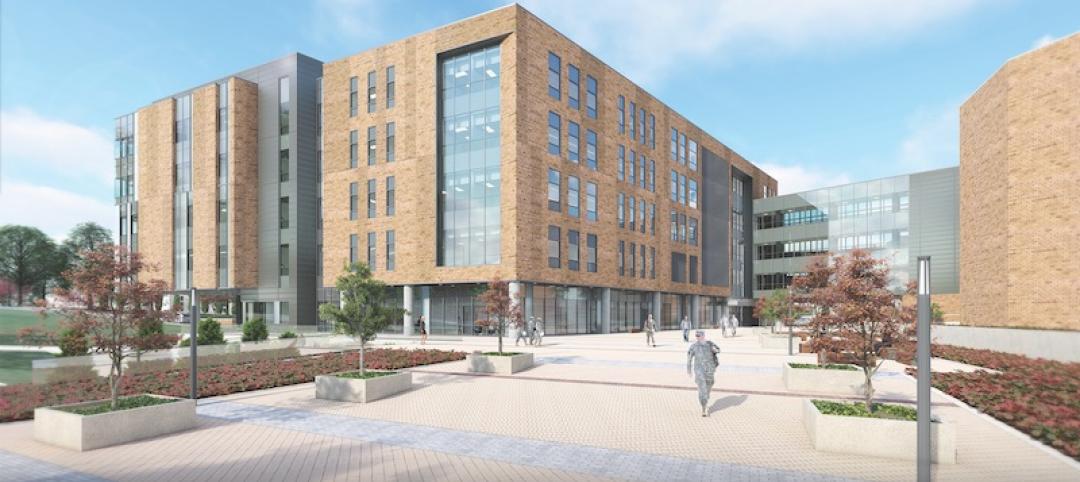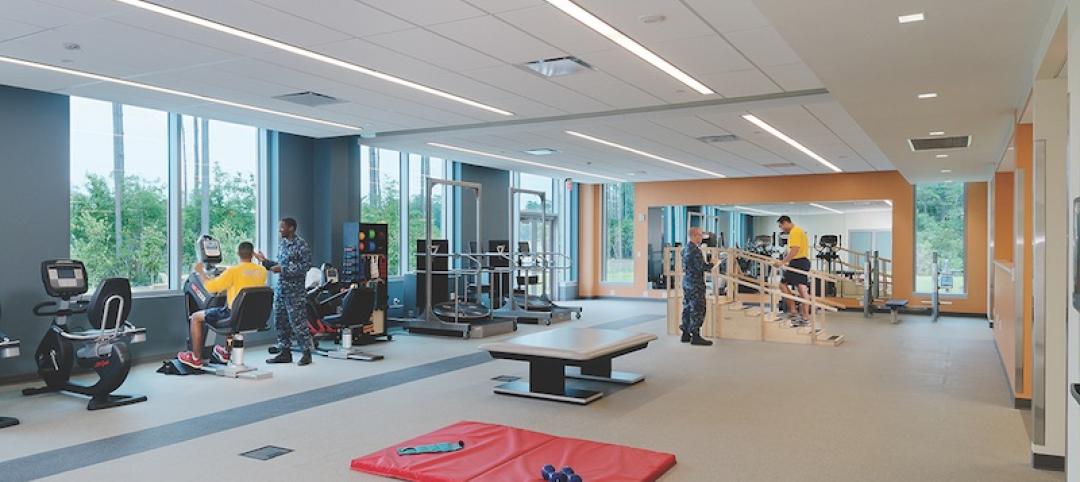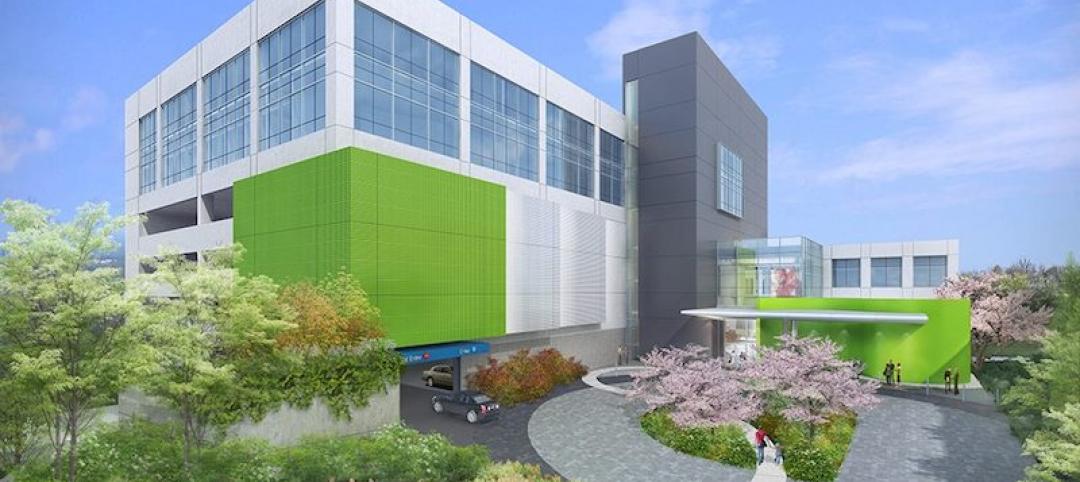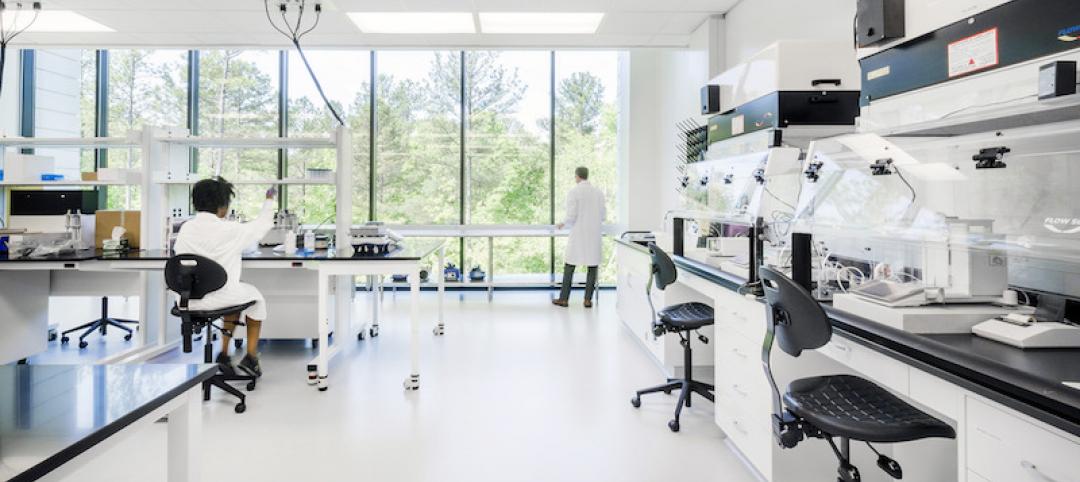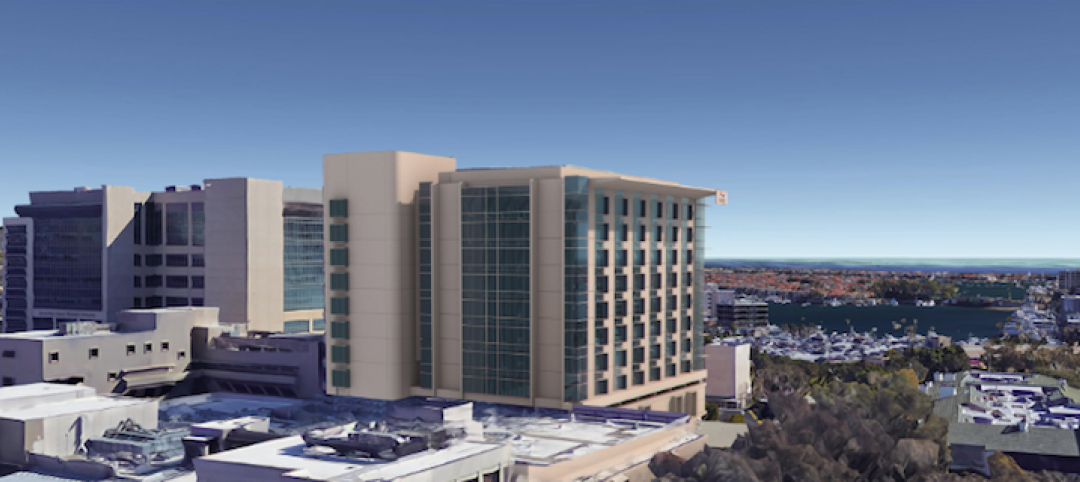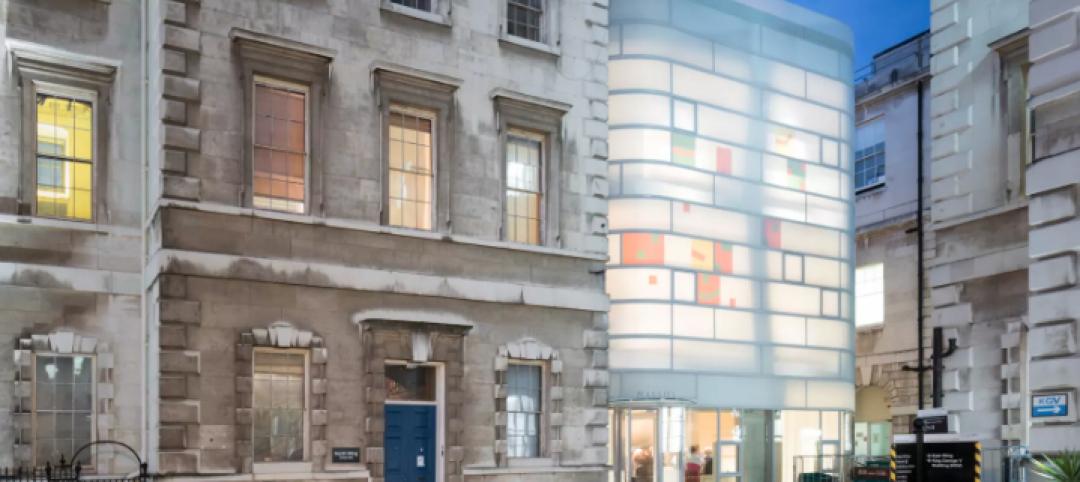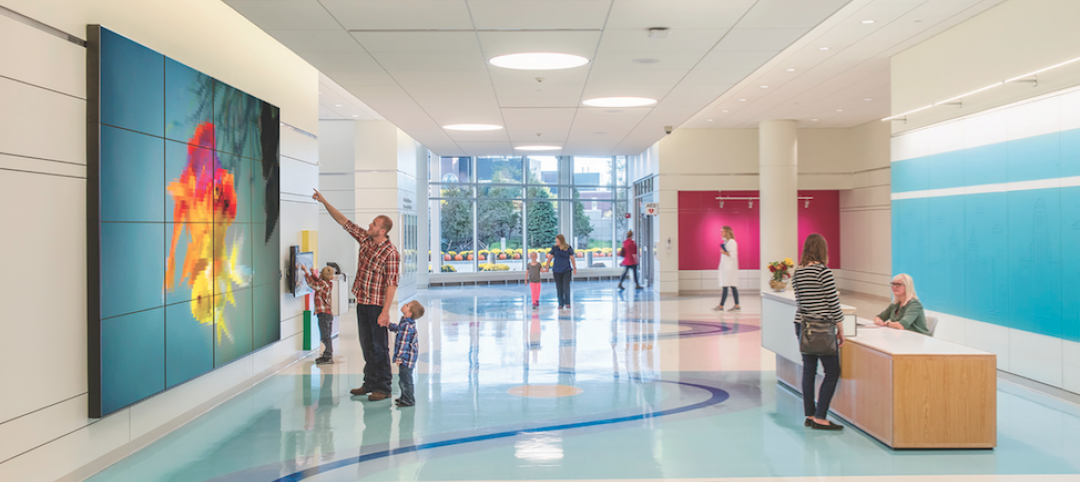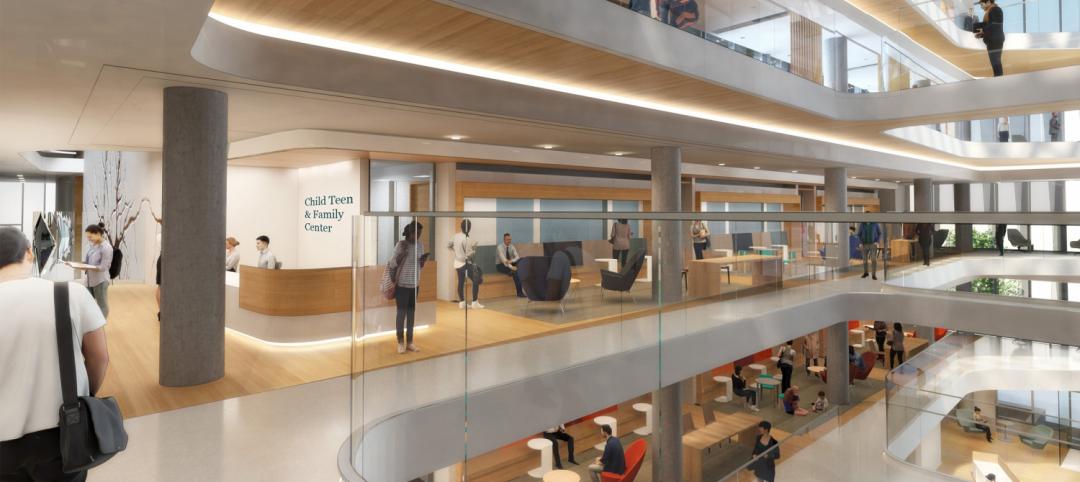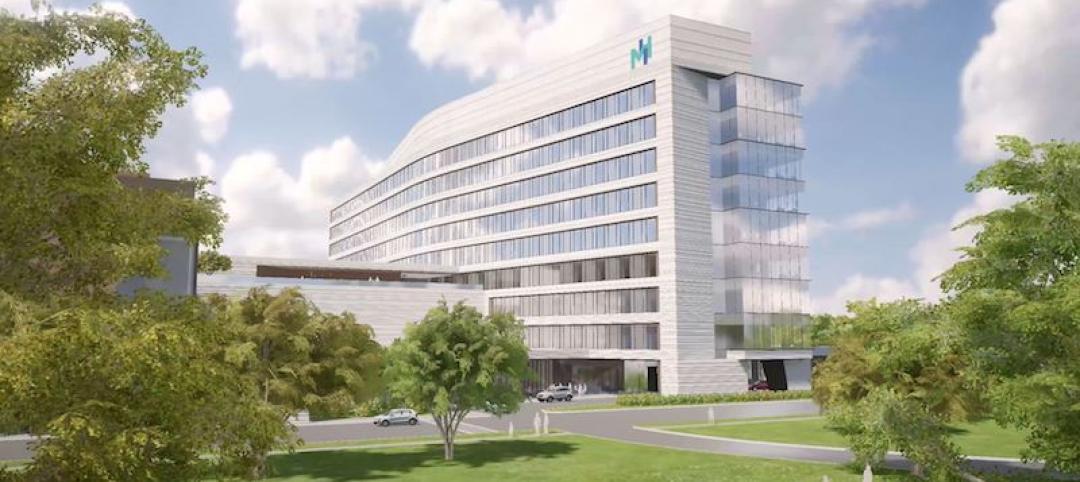Last October, the Edward-Elmhurst Health system opened a 36,100-sf multi-specialty clinic in the Chicago suburb of Woodridge, Ill., on what had been an undeveloped intersection of two busy roads that sees an estimated 55,000 cars per day. The leased building—whose lot was zoned originally for a Walgreens—is near a senior living facility, a gas station across the street, and a forest preserve.
The general contractor Ryan Companies, which owns this building and constructed it from designs by Jensen & Halsted, has benefited from the ongoing trend among healthcare systems wanting to place hospitals, clinics, and medical offices within office-retail corridors that, despite rising vacancy rates during the coronavirus pandemic, still promise exposure to ample vehicular and foot traffic.
The point of such placements, explains Curt Pascoe, Ryan Companies’ Director of Real Estate Development in Chicago, is to make healthcare “more accessible and visible in a highly competitive marketplace.” He describes this as the “retailization” of healthcare that enhances customer convenience. And while this trend has been evident for a while, Pascoe expects it to accelerate as the healthcare sector continues to consolidate with an eye toward bringing care closer to where patients live.
The Edward-Elmhurst Health Center is the second facility that Ryan has built in partnership with that health system, which recently merged with NorthShore University HealthSystem. The Woodridge center includes a walk-in clinic, and services for behavioral health, physical therapy, laboratory, and diagnostic imaging. It also has offices for primary care physicians and specialists.
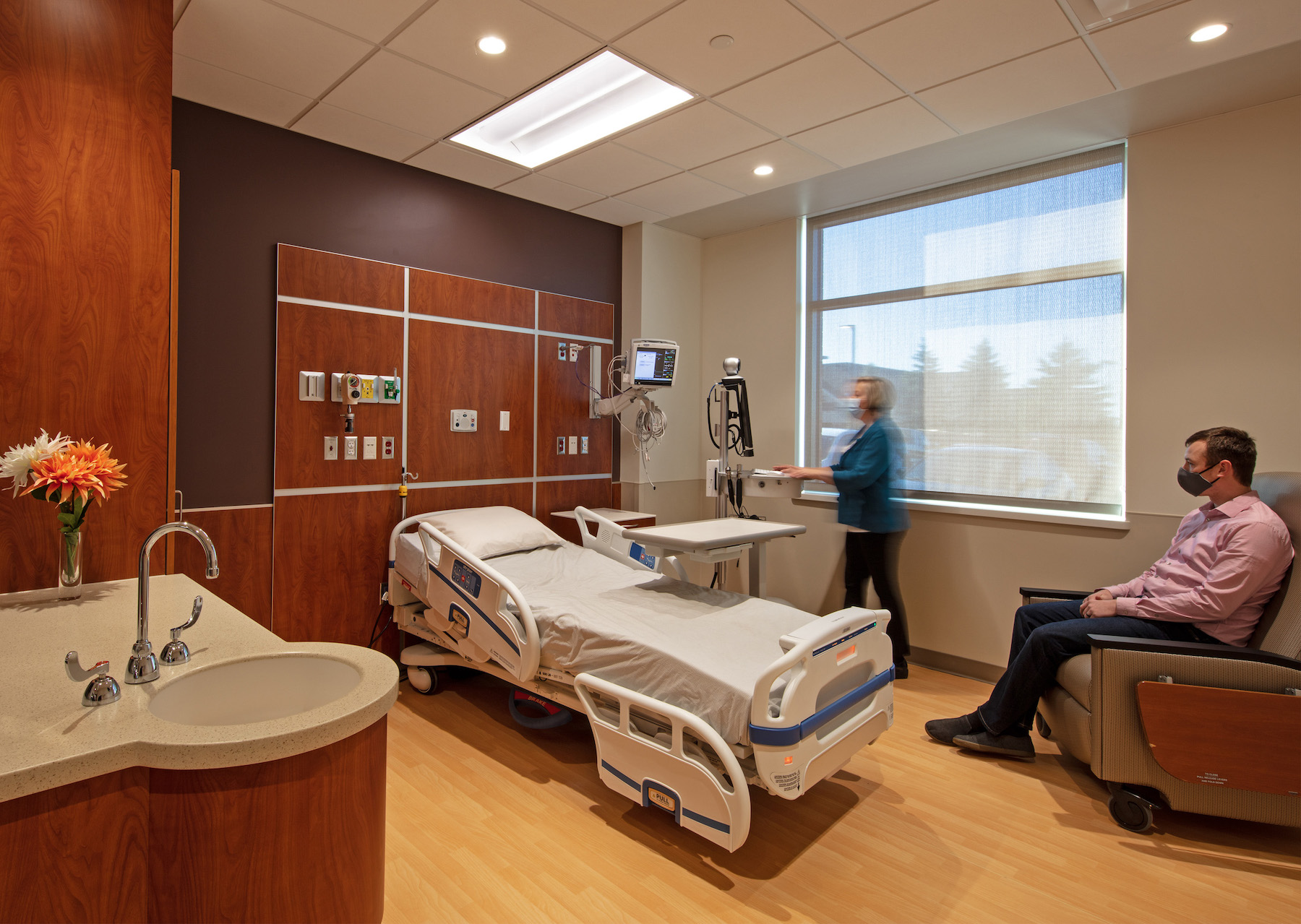
Ryan Companies, which is based in Minnesota, has been engaged by several Midwestern healthcare clients on similar projects that it has recently completed or has in the works. They include:
• A core-and-shell reconstruction of a two-story, 50,000-sf building as part of the redevelopment of the Oakmont Point office park in Westmont, Ill. Compass Health Center, a behavioral health provider, leased the entire building, which opened last August as the second anchor tenant in this 18-acre complex. Designed by Chicago-based Wright Heerema Architects, the building features a 15-foot clear height with floor-to-ceiling windows that overlook a four-acre pond. The center provides psychiatric care for children and adults. Pascoe says this building is situated off a major highway, and the surrounding office park includes several other medical-related facilities.
• Last December, on Port Washington Road in Mequon, Wis., a Milwaukee suburb, Ryan completed construction of the Froedtert & Medical College of Wisconsin Community Hospital, a 17,000-sf microhospital designed by Eppstein Uhen Architects with eight in-patient beds and seven emergency department beds. This microhospital is across the street from the 89,300-sf Froedtert Mequon Health Center, which Ryan developed in 2017.
Mequon is on Lake Michigan’s western shore, where there has been considerable commercial and residential development along Interstate 43, with more planned. To overcome the challenge of finding a suitable site in this area, Ryan Companies combined two former residential parcels, secured zoning changes, and obtained multiple easements. The microhospital is scheduled to open during the first half of this year.
“Our development team hit it out of the park with site selection and meeting with neighbors concerned about impact, while navigating complex municipal permitting,” says Pascoe. Ryan Companies had built a similar 18,100-sf microhospital in Pewaukee, Wis., for this healthcare system, which opened in December 2020.
Pascoe couldn’t discuss other healthcare facilities near retail-office corridors that his firm is currently involved with, except to note that a lot of these so-called off-campus facilities deliver care at lower costs, and can be built less expensively. (He declined to provide construction costs for the abovementioned projects.) While all of Ryan’s recent healthcare projects have been new builds, Pascoe acknowledges the opportunities that adaptive reuse might present to healthcare clients in the future.
Related Stories
Healthcare Facilities | Oct 29, 2018
Outpatient clinics bring the VA closer to injured veterans
The Department of Veterans Affairs is making efforts to improve its construction management and align its design guidelines to industry standards.
Healthcare Facilities | Oct 22, 2018
WSP-HKS JV signs deal for U.S. Navy construction work
The contract is not exclusive to the two firms, but it lets NAVFAC assign certain projects to them.
Healthcare Facilities | Oct 12, 2018
N.Y. builder pushes to get military trauma centers up and running quicker
To date, seven NICoE Spirit satellite centers have been built on the grounds of Fort Belvoir in Virginia, Camp Lejeune and Fort Bragg in North Carolina, Fort Campbell in Kentucky, Fort Hood in Texas, Joint Base Lewis-McChord in Washington, and Camp Pendleton in California.
Healthcare Facilities | Sep 7, 2018
Medical office construction isn’t keeping pace with the aging of America
A new Transwestern report suggests a “rethinking” of healthcare delivery approaches that lean heavier on technology.
Engineers | Aug 22, 2018
An electrical engineer’s take on designing successful pharmaceutical lab space
Patrick Licklider, PE, CEM, GGP, LEED AP BD+C, an electrical engineer in Clark Nexsen’s Science + technology practice, shares his perspective on what it takes to successfully design laboratory and manufacturing environments for the fast-changing pharmaceutical and biotech industry.
Healthcare Facilities | Aug 3, 2018
Seismic deadlines approaching for healthcare companies
California hospitals can save money with a holistic approach to retrofit issues.
Healthcare Facilities | Jul 30, 2018
Best in healthcare design 2018: Seven projects win AIA/AAH Healthcare Design Awards
The Steven Holl-designed Maggie’s Centre Barts cancer treatment facility in London highlights the honorees of the AIA Academy of Architecture for Health 2018 Healthcare Design Awards.
Healthcare Facilities | Jul 26, 2018
Healthcare market trends 2018: Health systems get leaner, more resilient
Hospitals set their sights on improving patient convenience and operational efficiency.
Healthcare Facilities | Jul 11, 2018
5 ways design is transforming behavioral healthcare
Circadian lighting, calming materials, and transparency are helping to normalize the patient experience in behavioral healthcare.
Healthcare Facilities | Jul 10, 2018
HGA designs acute care hospital for MetroHealth in Cleveland
The facility’s master plan creates a ‘hospital in a park.’


